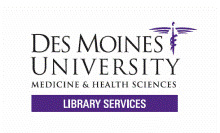Mixed methods analysis of diversity and equity education: Perspectives from third year medical students
Location
E4118
Document Type
Poster
Start Date
30-11-2023 1:05 PM
End Date
30-11-2023 1:45 PM
Description
Abstract
Delivering culturally and socially responsive healthcare is an important part of being a physician. To address this need, first-year medical students at Des Moines University (DMU) take “Foundations of Physicianship” (FOP). The course has four themes: identity, communication, bias, and epidemiology. Within each theme, students engage with content through community panels, group discussions, learning modules, and engagement activities.
All students (N=215) were invited to complete pre- and post-course surveys to assess their abilities and comfort level in providing culturally and socially responsive healthcare. This qualitative and quantitative research assessed third-year students’ perspectives and how FOP prepared them on rotations.
We asked students to consider a specific clinical encounter on rotations when they worked with a patient with an identity different from theirs and comment on: 1) how they applied something from FOP, 2) what they felt unprepared for, and 3) how FOP could have better prepared them. Students discussed using listening and motivational interviewing skills. They reported feeling unprepared for knowing which resources to provide patients and working with language barriers. Finally, students wanted to learn more about providing care for patients from various backgrounds and learning through practice scenarios.
Third-year students also rated their encounters with culturally and socially responsive healthcare and experiences working with patients with backgrounds different from theirs. Overall, most students reported feeling prepared in these areas.
This novel information can help DMU faculty shape curriculum to fit the needs of medical students throughout their preclinical and clinical years, overall improving culturally and socially responsive healthcare.
Citation Information
Desharnais, Brianna A.; Eastman, Abigail M.; and Van Liew, Julia, "Mixed methods analysis of diversity and equity education: Perspectives from third year medical students" (2023). Office of Research DMU Research Symposium. 39.
https://digitalcommons.dmu.edu/researchsymposium/2023rs/2023abstracts/39
Mixed methods analysis of diversity and equity education: Perspectives from third year medical students
E4118
Abstract
Delivering culturally and socially responsive healthcare is an important part of being a physician. To address this need, first-year medical students at Des Moines University (DMU) take “Foundations of Physicianship” (FOP). The course has four themes: identity, communication, bias, and epidemiology. Within each theme, students engage with content through community panels, group discussions, learning modules, and engagement activities.
All students (N=215) were invited to complete pre- and post-course surveys to assess their abilities and comfort level in providing culturally and socially responsive healthcare. This qualitative and quantitative research assessed third-year students’ perspectives and how FOP prepared them on rotations.
We asked students to consider a specific clinical encounter on rotations when they worked with a patient with an identity different from theirs and comment on: 1) how they applied something from FOP, 2) what they felt unprepared for, and 3) how FOP could have better prepared them. Students discussed using listening and motivational interviewing skills. They reported feeling unprepared for knowing which resources to provide patients and working with language barriers. Finally, students wanted to learn more about providing care for patients from various backgrounds and learning through practice scenarios.
Third-year students also rated their encounters with culturally and socially responsive healthcare and experiences working with patients with backgrounds different from theirs. Overall, most students reported feeling prepared in these areas.
This novel information can help DMU faculty shape curriculum to fit the needs of medical students throughout their preclinical and clinical years, overall improving culturally and socially responsive healthcare.

